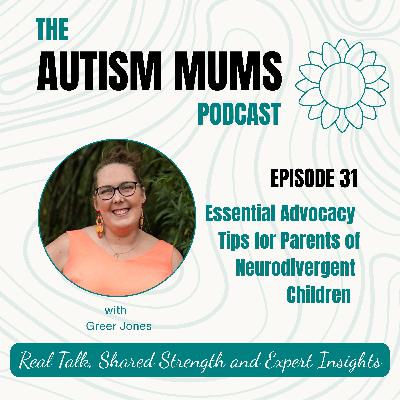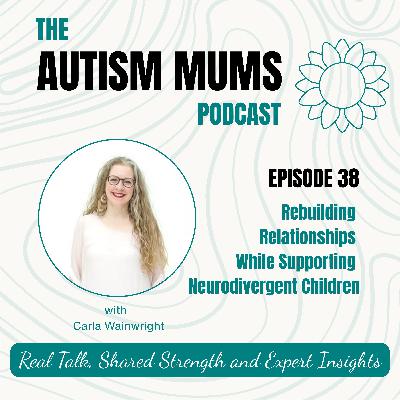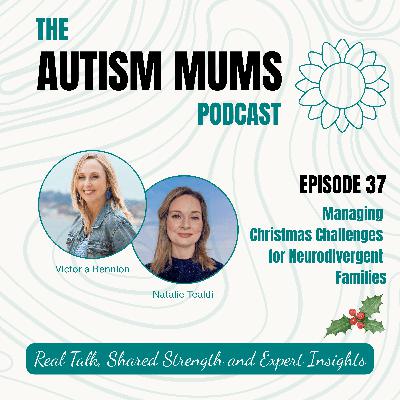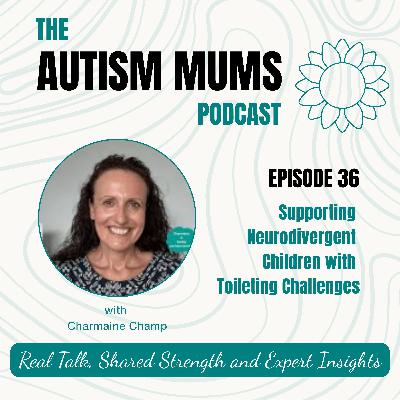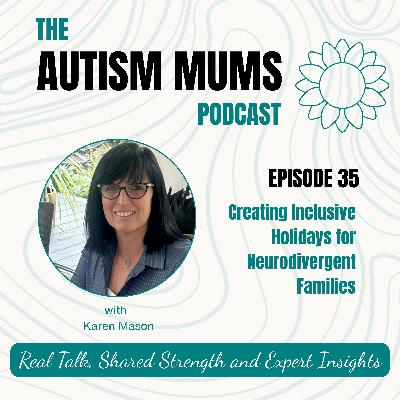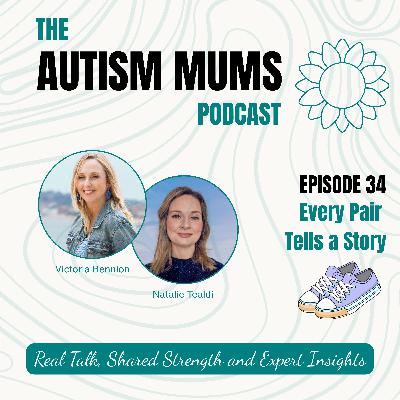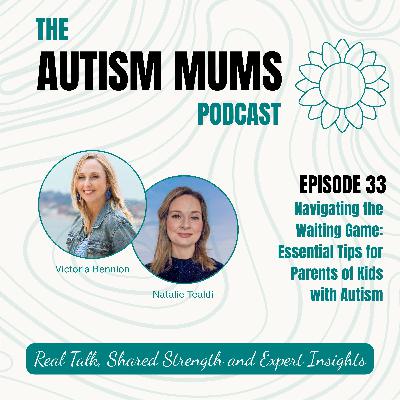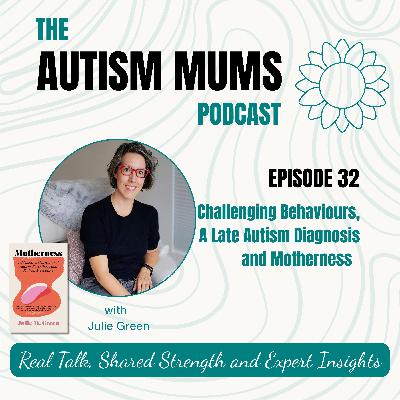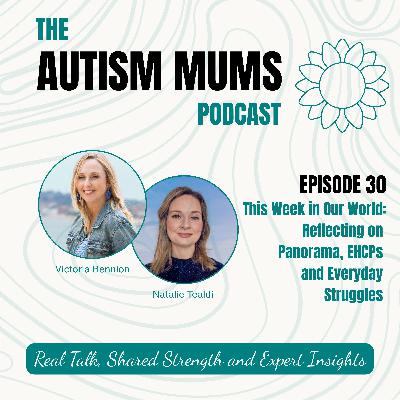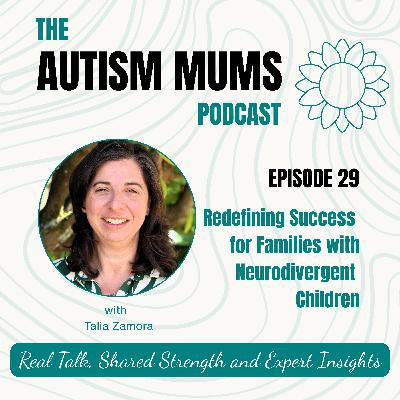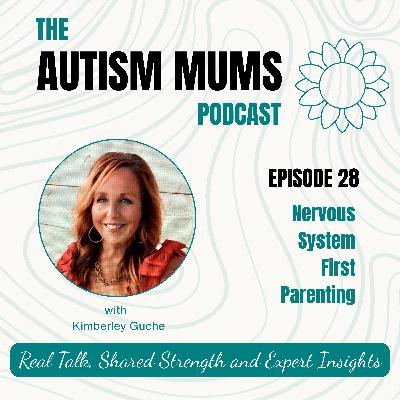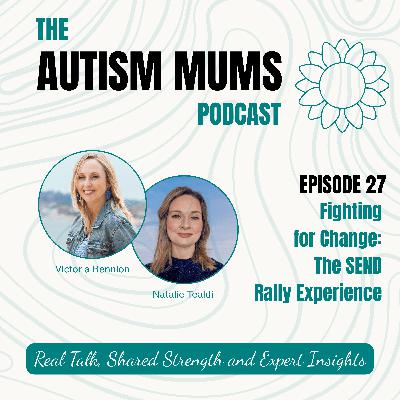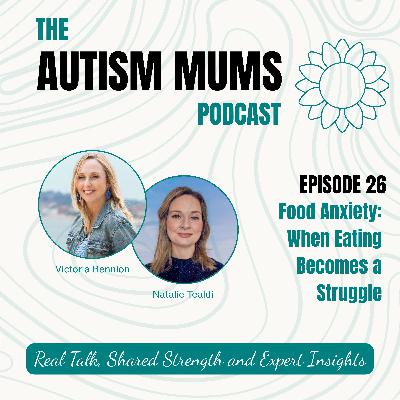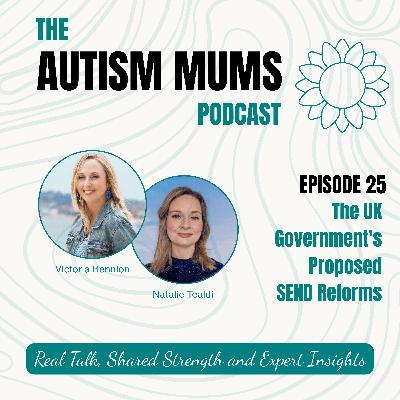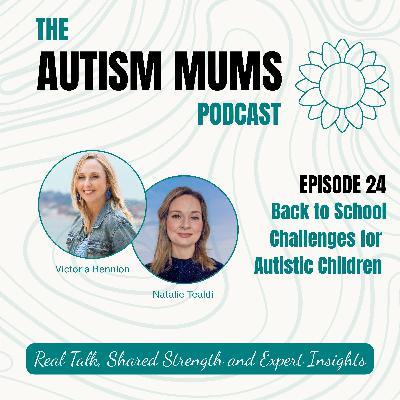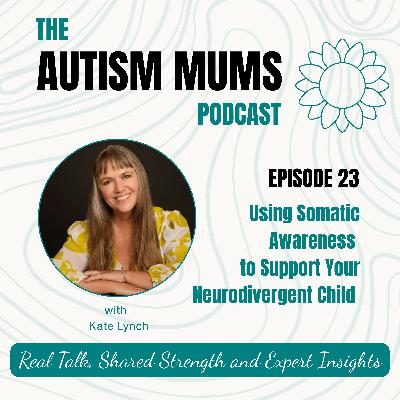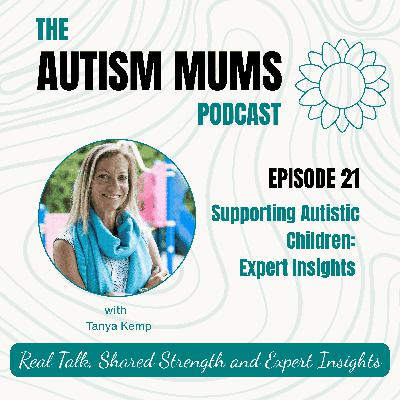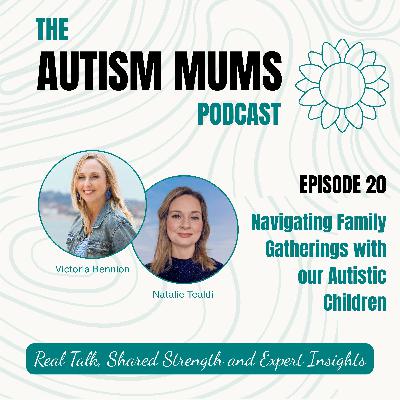Essential Advocacy Tips for Parents of Neurodivergent Children with Greer Jones
Description
In this week's episode of The Autism Mums Podcast we welcome Greer Jones to the show.
Biography
Greer Jones is a speaker, writer, and podcast host passionate about building understanding and connection in the neurodiverse world. As a mom raising an autistic and ADHD child, and part of a neurodivergent couple herself, she brings honesty, empathy, and lived experience to her work. She is the creator of The Unfinished Idea podcast and online community, where she provides encouragement, practical tools, and a reminder that no one has to walk this journey alone. Her story has been featured in podcasts, conferences, and publications, inspiring families to embrace their unique path with hope and courage.
Key Takeaways
- Understanding Neurodiversity: Greer emphasises that autism and ADHD manifest differently in each individual, highlighting the importance of recognising and valuing each child's unique strengths and challenges.
- Advocacy Experience: Greer shares her experience of advocating for her son, stressing the need for parents to be proactive in navigating educational and healthcare systems.
- Building Community: Connecting with other parents and families facing similar challenges can provide invaluable support, encouragement, and shared strategies for managing daily life.
- Positive Framing: Starting meetings with positive affirmations about a child helps shift the focus from deficits to strengths, fostering a more collaborative atmosphere.
- Partnership with Schools: Greer advocates for a partnership approach with educators, emphasising the importance of regular communication and collaboration to support a child's needs effectively.
- Managing Expectations: Understanding that neurodivergent children may struggle with transitions and choices allows parents to adjust their expectations and provide necessary support.
- Embracing Flexibility: Greer discusses the importance of adapting plans and routines according to a child's needs, especially during challenging periods, to minimise overwhelm.
- Creating Safe Spaces: Providing children with tools and strategies, such as sensory items or designated "fun bags," can help them navigate overwhelming situations more comfortably.
Mentioned in This Episode
The Unfinished Idea Podcast with Greer Jones
Connect with Greer
Website – http://theunfinishedidea.com
Instagram - https://www.instagram.com/theunfinishedidea/
Connect with The Autism Mums
Website – https://theautismmums.com/
Follow us on Instagram https://www.instagram.com/theautismmums
Follow us on Facebook https://www.facebook.com/theautismmums
Follow us on TikTok https://www.tiktok.com/@theautismmums
Transcript
Victoria Bennion: Welcome to the podcast.
Greer Jones: Thank you. Yeah. Thanks for having me. , I'm glad to be here.
Victoria Bennion: It's great to have the chance to talk to you after meeting you at the Send Rally
Greer Jones: Yeah, it was fun. I found that really just be really impactful because I got to meet so many people in person that I know online and have seen online. So yeah, it was good.
Natalie Tealdi: Can you start by [00:02:00 ] telling us what your family's journey through diagnosis has taught you about resilience and hope?
Greer Jones: Yeah, that's a great question. So just a little bit about me. I have a son who's autistic, A DHD. I'm married to someone who is autistic, and then I have a DHD. And then I have another son who, we don't know where he's at. He's only three, so it's,
Natalie Tealdi: Early days.
Greer Jones: Yeah. Early days. Yeah. I definitely think there's maybe some sensory processing, but I don't know if that's added into anything so really our journey started when our oldest son, who is autistic, A DHD, was two. And we were just coming outta the pandemic and we were just realizing that. He was processing and receiving the world differently and along with his speech being delayed. And so we were trying to really pursue that.
And in the process, kinda asking questions like, oh, is this typical or is this not? 'Cause he'd hit all of his kind of milestone markers, he could say mama and dad, but he couldn't say anything really beyond that. [00:03:00 ] But he could count, he could say numbers, which.
It's like I look back and I'm like, yes, this makes all sense. But like at the time I was like, how can you count to 20 when you're two, but not say fridge, or not say milk or like those kind of we call basic word words.
Whereas now I'm like, oh, this all makes sense.
My first conversation actually with the GP was particularly more around his speech, but he basically said that my child's speech delay and while he was processing the world differently was because I'm American. To which I said very quickly. Nice try. Tell me something else. , I thought may, maybe if it's a different, completely different language where I'm like, American come on, that's silly. But anyways, so that was, I think maybe even our first little taste of what we were entering into of kind of even advocacy of people are going to try and tell you. Some people just aren't gonna know.
I think, to be honest, I think that GP didn't really know what he was talking about. . And two, they're gonna just try and [00:04:00 ] give you the lowest effort answer sometimes because
Victoria Bennion: So
Greer Jones: that's, yeah. The, just where we are. And so we started pursuing other things.
In that time he then started going to nursery, which again, nursery, gave us the lowest possible effort. Answer. To the point where at one point they said to me I was gonna have to pay for his extra support, which I knew nothing like being American. I know nothing about the British system like nursery and all of that, was new school, all of that.
It was a very interesting and hard experience. So then we enter into school and I wanted to be really proactive. Having had not a great nursery experience, I wanted to be really proactive with the school and say here's strategies we like are working at home. We don't know where he is on the spectrum, but we definitely at this point know he's on the spectrum.
Can we work together? I very much am pro partnership of, wherever your school setting is. So just going through that and leaving that meeting. [00:05:00 ] So that was before he started. So this was like the July before he started in September and leaving that meeting feeling like they just thought I was an overprotective parent and thought I was crazy.
That was one. I think my first real moment, like looking back, I'm like, oh, these other moments were probably. Part of our story, but of when I was like, I am my child's voice,, they did not hear me. This is not okay.
So from that meeting, they said, give it a week. When he starts school, we'll set in some support, see how he does, blah, blah. Week, day two, of starting school, I got the call that said that they were not able to support my child's needs. That he needed to come in for an hour a day. Which turned into two hours because I was like, I'm not coming for an hour.
What am I supposed to do? And how it was set up was not legal. And realizing again, the conversations that needed to be had and who with weren't. And so again, trying to align like. For example, in the US you speak to the class teacher, that's your point of call.
If there's any other people you need to speak to, she'll [00:06:00 ] make the reference whereas at our school, , the class teacher didn't wanna talk to us. They were referencing us to someone else quite quickly. And I was like, who is this person?, It was just a very weird experience.
So partly I think because of learning the school system, but also just learning that after getting that phone call of you need to come get your child, he can only do this, blah, blah, blah. And , that first six weeks I learned a lot and realized a lot that people dunno the law, that was the biggest thing.
And that people are, because they dunno the law, they are going to also not look at the child, but look at the whole. Which again, it's not wrong. I'm not saying that's necessarily a bad thing, but. You. That means the child then gets lost. I think that, at least in our instance, and so it is. From that, I just started sharing, I sh started sharing our experience and going, this is what it's like to get him to school.
This is the fact that he's only going for two hours and I have had to take work off. I've had work was quite good. They, in the end, we're quite flexible with my time., But [00:07:00 ] there's some people I know who wouldn't, you know, who wouldn't be able to, and just like different things that we had to work around.
And it was when I started sharing that, people were like, oh yeah, we've gone through that. Or we know what it's like to battle getting their shoes on. And it be more than just a kind of. They don't want to. But a true battle of getting shoes on or clothes on. My child loves to be naked.
S

